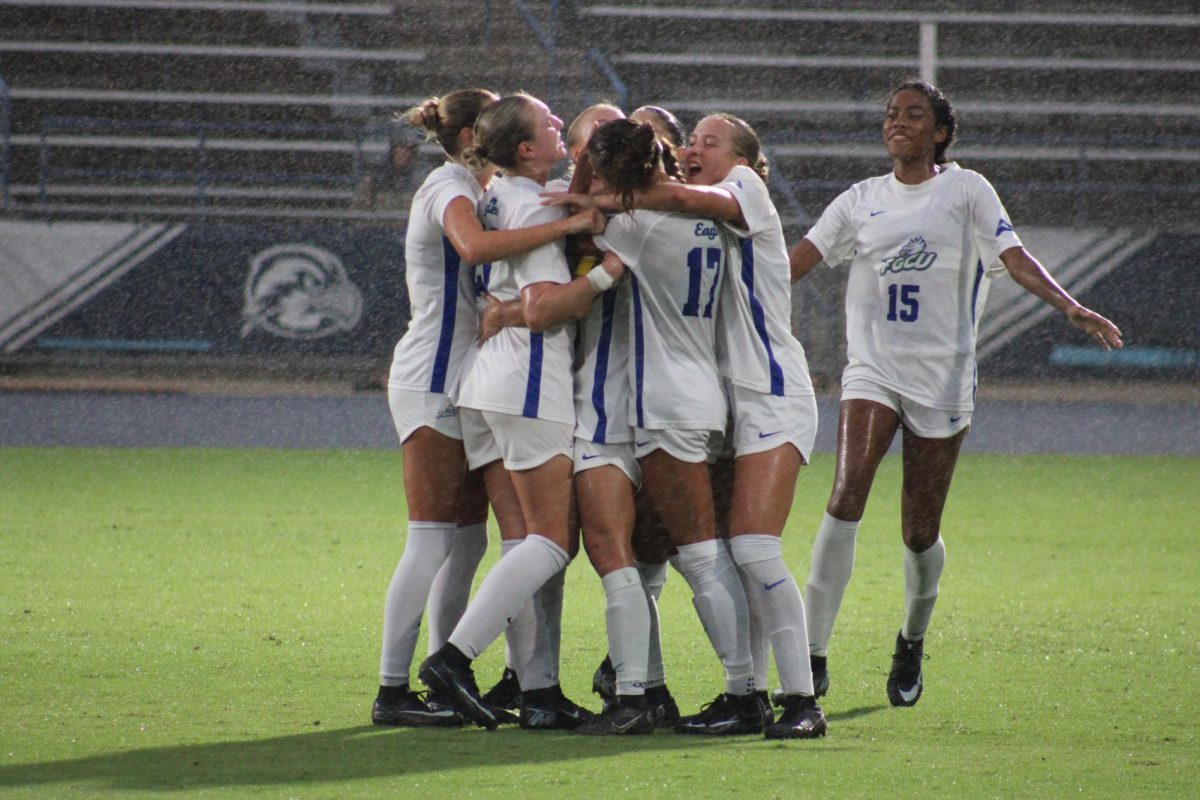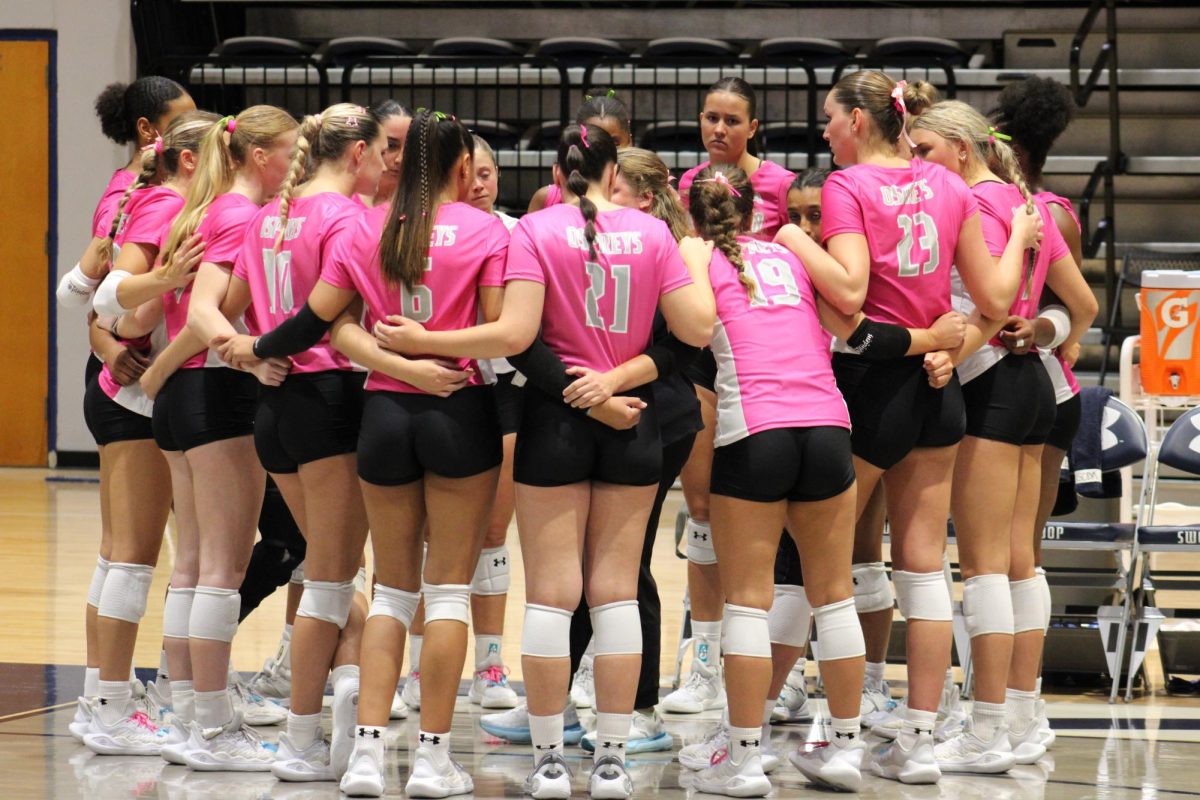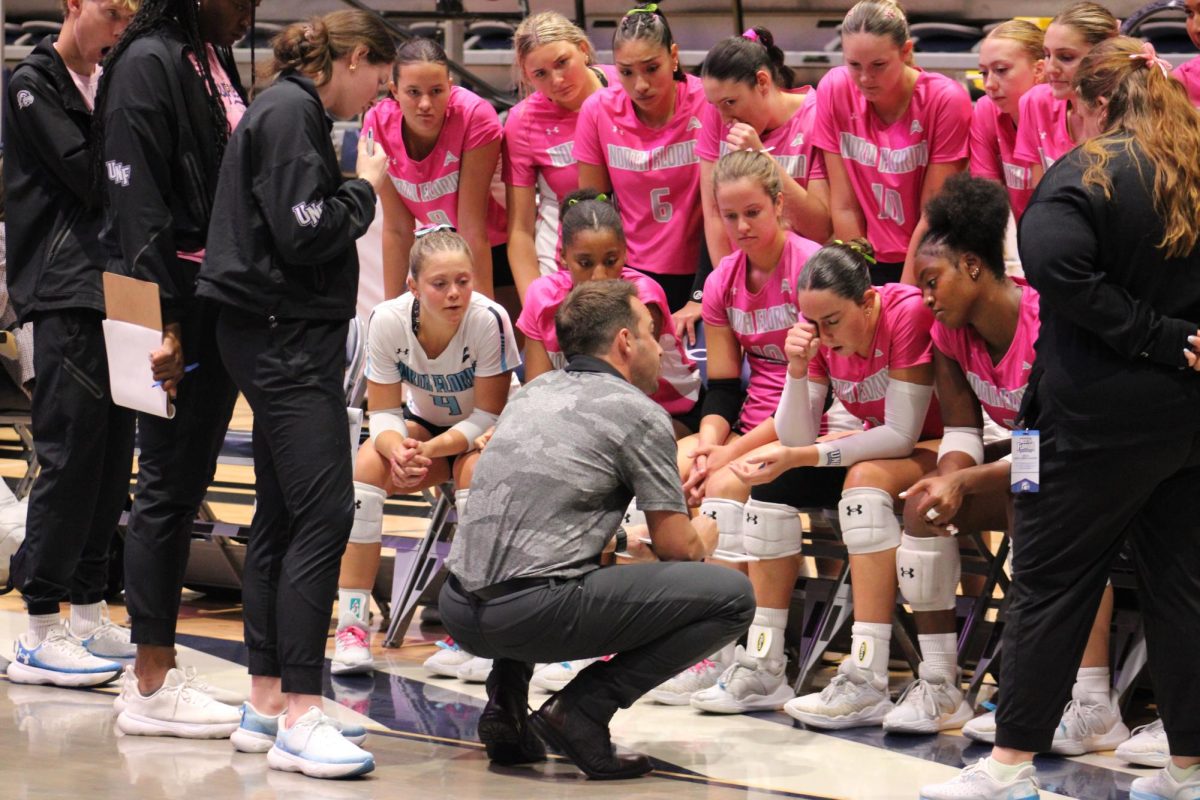
The BOT joins the state in piling budgets on students’ backs
Here we go again. The state, and now UNF, has dumped all the responsibility of keeping higher education in Florida relevant on the students.
March 20, at the seemingly annual UNF Board of Trustees tuition hike meeting, the BOT did it again. Next year, UNF students will pay 15 percent more in tuition. Just as they did last year, and the year before that and the year before that. It’s starting to get old.
This year, the BOT had extra pressure on them to raise tuition by the full 15 percent because the state of Florida decided not to mandate a tuition increase, with the assumption that each university would ask its students itself.
So UNF felt its hands were tied. And to be fair, it would have been tougher to cut money from elsewhere in the university than ask the students to up the value of their electronic checks. But with a pay cut here and another year with an old computer there, the money surely could be found. Unfortunately, the BOT and UNF administration have made it clear that they don’t value the students.
To his credit, Student Body President Matt Brockelman was as persistent and forward as could reasonably be expected of a student representative in a room full of wealth and power. He prepared a lengthy powerpoint detailing the tuition increases for the last four years, and exactly what that meant for students’ budgets. He asked numerous questions of the administration, asking them to specifically detail for the board what they would do if they didn’t get additional revenue from students. He even proposed another option for the board when they seemed ready to pass the tuition with ease, an amendment that would only increase tuition by ten percent.
But they wouldn’t budge. It seemed the board made their decision long before the afternoon meeting.
They probably didn’t expect the presence of eight students, pleading with the Board to reconsider. Several students even provided personal testimonies of financial difficulties that will force them to find alternative education in the near future. One student was even near tears when sharing his story. But the Trustees wouldn’t budge. Apparently the BOT, and in turn the state, doesn’t value these students as much as they claim to.
The statistic that drove the board to pass the increase without qualms is one that is often used when discussing the future of higher education tuition in Florida. The fact is, Florida ranks 45th in the nation in tuition and fees. Florida schools are consistently among the top ten best value schools in the country, and UNF is often on that list.
Fair enough. Our complaints can’t compete with those in New Hampshire, for example, where it costs more than double what it does in Florida. But as Brockelman argued, the repeated tuition increase year after year takes a toll on a student in school that doesn’t necessarily budget for those tuition hikes. And as Bright Futures goes down, and Pell grants become harder to come by, the times get more and more desperate for those aspiring to be educated. Besides, students aren’t asking for a decrease in tuition. We are simply asking for less of a hike.
So what would happen if the university was forced to cut that 15 percent from their budget, rather than push it off onto students?
President John Delaney said they would have to cut around 20 faculty. Nearly all of UNF’s 16,000 students will feel the effect of higher tuition. How many of those will be forced to drop out of school altogether?
Delaney is proud of the fact that he hasn’t had to fire any faculty during a time when many other universities haven’t been so fortunate. That’s fantastic, and we commend him for that.
Don’t get us wrong, the Spinnaker likes faculty. Faculty make this university run, and of course, as students, the more qualified professors we have, the better it is for our education. But tough times call for tough decisions, and we like being able to afford attendance as well.
It’s unlikely that in the event of university budget crisis, faculty would be the only segment of the university community left bleeding. Other programs, scholarships and funding would have to go as well. The administration also mentioned putting scholarships like the Jacksonville Commitment Scholarship or travel funding for certain research projects on the chopping block.
But Delaney said, soon after getting this job, that part of UNF’s value as a university focused on undergraduate programs and teaching.
“Each university has their own mission, and we want to zero in on teaching,” he told the Jacksonville Financial News and Daily Record in 2005.
But again, the university has chosen these programs over the students.
We know the options are limited. The real evils lie in the decision of the state to pile all the funding responsibility on the individual universities. Then the universities turn to the students for help.
It’s an unfortunate and dire situation for students, but there is no one else to shoulder the burden.
If we continue to pile the funding on the backs of students, they’re going to break. Higher education could revert back to an option only affordable for the country’s elite. And that is a direct contradiction of the essence of the American dream.
But to echo Chicago Cubs fans, there’s always next year.
Send letters to the editor to editor@unfspinnaker.com.











